The first sound you hear on Noah Preminger's latest album, Ballads, is a saxophone tone that carries weight—dark, purposeful, and with a sense of lived experience. This quality runs through everything the Boston-area tenor saxophonist creates. For Noah, music exists in direct relation to his adventures beyond the bandstand, whether boxing, skydiving, skiing, or competitive gaming. His philosophy connects risk-taking in life with artistic expression, viewing each edge-seeking experience as a way to deepen his musical voice.
Born in 1986 and raised in Canton, Connecticut, Noah attended Hall High School in West Hartford, an institution that produced a remarkable number of jazz luminaries, including Brad Mehldau and Joel Frahm. From his earliest days with the instrument, Noah approached music with uncommon dedication, often practicing for eight hours daily. He studied with saxophone luminary Dave Liebman, who instilled a technical foundation and an understanding of the music business. Noah released his debut album Dry Bridge Road just after turning 21, earning "Debut of the Year" honors in the Village Voice Critics Poll and establishing himself as a distinctive voice in contemporary jazz.
What distinguishes Noah from many of his peers is his perspective on music's place in his life. He considers playing music secondary to exploring life itself, viewing his profession more as a job than a life's work. This outlook may explain the remarkable breadth of his discography—nearly two dozen recordings as a leader spanning from post-bop traditions to explorations of Mississippi Delta blues to politically-charged protest music. His sound draws comparisons to saxophone giants like John Coltrane (whose collaboration with Johnny Hartman remains Noah's favorite recording) while maintaining a voice that The Boston Phoenix described as beholden to no one.
On Ballads, Noah explores the profound emotional possibilities within lyrical expression. Working with pianist Julian Shore, bassist Kim Cass, and drummer Allan Mednard, he balances restraint with emotional depth, demonstrating that melody, when fully embraced, can move listeners as powerfully as explosive improvisation. What emerges is music that feels timeless and personal—the sound of an artist transforming life experience into sound, one carefully considered note at a time.
Noah Preminger was a recent guest on the Spotlight On podcast. He spoke with host Lawrence Peryer about the latest album, Ballads, his disappointing first attempt at a ballad record, how he reacted to unsolicited advice from a music critic, his twice-a-week gig that he’s played for 12 years, and why, if forced to choose, he’d give up improvising on the saxophone for composing on the piano. You can listen to the entire conversation in the Spotlight On player below. The transcript has been edited for length, clarity, and flow.
Tough Love
Lawrence Peryer: I was going to get to it a little later, but you've had your share of great drummers, man, all great players. Rob Garcia and Matt Wilson early on, like tastefully assembled ensembles.
Noah: I mean, the drum is the backbone of the group. It can supply the most energy for an ensemble and boost everybody in the band. So, I value the drummer probably the most, and I've been fortunate to play with unbelievable drummers. I wish I could have played with Roy Haynes—that was sort of like my number one that I missed out on. Elvin Jones, too, but the older I get, the more I think I love Roy as my number one.
Lawrence: Tell me a little about studying with Dave Liebman. That's super intriguing. How did that come about? I'd have to imagine he dropped incredible knowledge on you as a young man. Can you give me the pithy summary of the Dave Liebman impact?
Noah: I have a fascinating relationship with Dave. He was my teacher between the ages of about 12 and 17. I was introduced to him by my high school band director, a saxophonist named John Mastroianni, who—I think Obama named him one of the hundred best teachers of the year, one year. He's an incredible teacher and a ridiculous saxophone player, alto player. I mean, it's stupid that he was teaching at a public high school, although the public high school I went to also birthed Joel Frahm and Brad Mehldau, and a lot of other great players too. For a public high school, it had something in the water.
John Mastroianni told me I should apply for Liebman's summer workshop, where he works with about a dozen sax players of all ages at his house. I went out to do that workshop. He said some unbelievably demoralizing things to me in front of everybody. There have been many highs and lows working with him or just having a relationship with him. He's like a kind of a musical father but like an abusive musical father. (laughter)
Lawrence: Tough love?
Noah: Tough love. Yes, for sure. Liebman is big on the transcription thing, which is the most important part of being an improviser, how you take other people's information, understand it, and then work through it in a way that you can create your vocabulary from it. There's this final step of the transcription process, where you take the information you've studied, analyzed, and learned, then create variations to create your vocabulary. People stop right before that step for whatever reason. Either they're not taught that or whatever it is, or they just really love the person they’re transcribing and become a clone of that person, which is common in the history of jazz. You get a ton of clones in any art form, I guess. It's a drag, but some people want to be that, and you can't judge them.
Anyway, Liebman was instrumental in helping me understand that transcription process, becoming my own identity on my instrument. A little bit of sound production, but not really. And so what he would have me do is he would say, "Okay, you're going to transcribe this solo—Trane improvising on 'Blues to You.' So why don't you call me in six weeks when you have some of this done, and we'll talk about it." So I would call him in a month and a half, and we would discuss it. I would play a little bit over the phone for him of what I had learned. He would have me sing it; he would have me play it by memory. And then after I had gotten through that process on a solo, I would snail mail him my transcription with a paper that I would write on it—like an analysis paper. And that would be our lesson. And then I went out to his house a number of times, and we would hang all day, and he would play drums, talk and all that. And so that was sort of my education with Liebman, which was great.
Lawrence: That's heavy. Wow.
Noah: Yeah, it was great, and I had the opportunity to take some lessons with others, too. There's a tenor player named Rick Margitza that I took a lesson with. He lives in Paris now, but he's an unbelievable tenor player. He played with Miles a little bit. I was fortunate to have taken some lessons and checked out a lot of amazing people. And so all those things have helped me become who I am now.
Lawrence: When I think about people like Liebman or Gary Bartz or Azar Lawrence, that initial generation of post-Coltrane guys, you have to credit the audacity and the strength to pick up that tradition and still find your voice in the immediate aftermath of Coltrane. Even when there are moments in some of the music that feel Coltrane-esque to me, it's like, well, how could it not? It's like criticizing a mid-sixties rock band for sounding like the Beatles. (laughter)
Noah: Right. Michael Brecker and Liebman … these guys were like the next generation. It's hard to think about it like that because you see Trane and put him on a pedestal, which he deserves because he is ‘the one.' And then it's like, these guys were coming up right after that. They were around during that time.
Lawrence: Yeah. It's not baseball where they retire the instrument. They're not going to be like, “No more sax players." (laughter)
Noah: It makes sense that they would follow in his footsteps because he was unbelievable. And just the level of musicianship then was jaw-dropping. Then it can take you down a dark path thinking about where we are now musically and what happened back then, 60, 70 years ago, even 50, 40 years ago, and it's like, well, what is happening right now? It's a transition period. I guess it's always a transition period, but taking a step back is interesting.
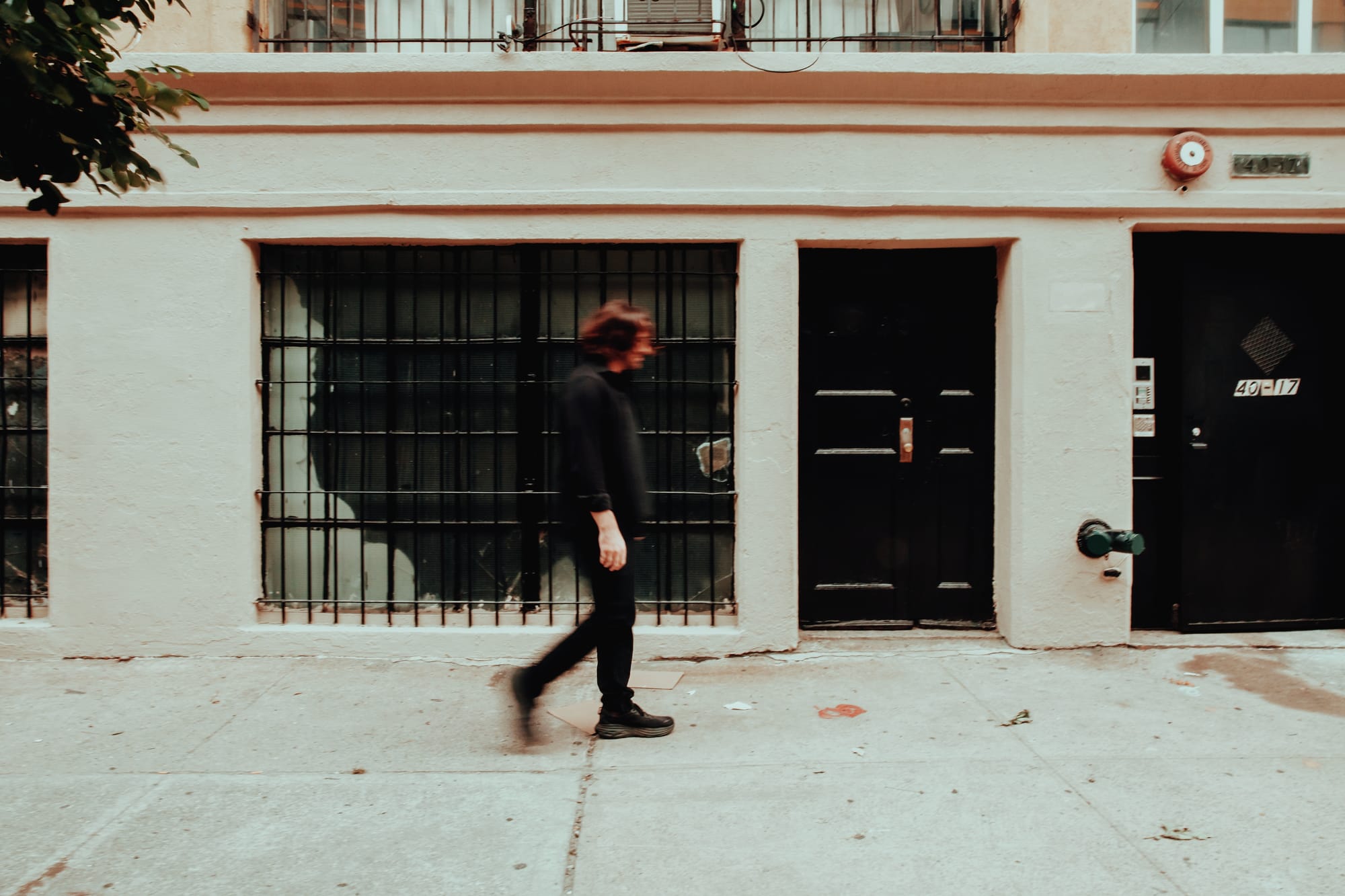
Put Your Head Down, Do Your Work
Lawrence: You move through worlds as well—musical territories—and I think that's relevant to everything we've been talking about because of this spectrum of orthodoxy, tradition, innovation, and how all those things are considered and regarded. How do you think about these journeys? I'm curious about that restless nature.
Noah: I need to be excited about a project to pursue it because it's not like we're doing it for the money or fame. That's for your twenties to have those dreams and aspirations. When you hit your thirties, it's like, okay, just put your head down, do your work, and be excited about the stuff you're doing. Try to wake up every day and look forward to creating something new or doing something else with your life.
So for me, the projects that I've pursued, I've done them because I'm stoked to do them. About 15 years ago I got into the blues and did a couple of records that celebrated blues musicians, especially from Mississippi. One was called Dark Was the Night, Cold Was the Ground. That was a lot of fun, and I had a great time researching and learning about those players. I even teach a course about them at the college I teach at.
I also did these two records with a bassist named Kim Cass. One is called Thunda, and the other one's called The Dank. For those projects, Kim and I, during the pandemic, decided we were both getting into the digital recording sphere of things. I never learned any of this stuff, and it always freaked me out. I've always written all my music by hand. It took me years to even start doing anything in notation software, and I still suck at it. Kim was a little bit in the same boat. He was a little more advanced than I was. Still, we decided to collaborate on a recording where I would start by sending him a recorded idea and he would take it and do something so jaw-droppingly ridiculous that we would be in tears laughing. It was so awesome.
The goal was to do that back and forth until we finished the piece. He would text me, "Okay, man, it's on its way." I would gear up for it, listen to it a million times, and then get excited to record my next part. And then we would eventually say, "Okay, this one's done. Let's do the next song." And that was how we did our record called Thunda.

Then we got a grant through New Music USA, which was validating to get that grant after sending them our record in our application. So that helped us make our next record, called The Dank, primarily Kim starting the pieces and sending them to me. It doesn’t make a big difference who started them when, but we switched up the process for that record.
We spent hundreds of hours on those records because everything was done at home. We edited them ourselves. It was a huge labor of love.
Lawrence: How does that relate to turning to a ballads album now?
Noah: I made a ballad record years ago, maybe, I guess, almost probably eight years now, for a record label that only releases on vinyl. And the band was amazing. It was like my dream ballad band. It was Billy Hart on drums, John Patitucci on bass, Ben Monder on guitar, and myself on tenor. And I was excited about it until I heard the final version of it and I was like, "There's no way I can let this see the light of day." I hated it that much. I hated my playing. I wasn't happy with the actual sound quality of it. There wasn't any component that I enjoyed. And so I realized, "Okay, this is only going to be out on vinyl. It's a very niche audience. After two years, we get the master, and I'll just stick it on the shelf. This is never going to see the light of day." I think it has resurfaced on streaming websites, which is a drag, but I wanted to do a ballad record and do it better.
And so I was introduced to this new record label called Chill Tone Records. One of the three owners is an unbelievable engineer, like a world-renowned engineer, and I had heard some other jazz stuff that he had recorded, and I fell in love with how he engineers. He does something that I don't hear on many recordings: the quality they have, which is like everything is super present, especially the drum set. And for me, like again, like we were talking about before, drums are one of the more important parts of the ensemble and can drive the group. And to have this presence of the cymbals, the brush strokes, and everything just very present in your ears is important to me. And there's a lushness that he gets out of the group. I thought that it would be perfect to do a ballad record. I pitched it, and they were into it.
Their label is a little more on the straight-ahead side of improvisation. I mean, there might be one bass solo on the whole record. It's very straight-ahead, which I was cool with. It’s funny; I’ve gotten more compliments for this Ballads record than any other project I’ve ever done because I think it’s so unbelievably accessible.
Lawrence: That's fair. It's certainly not dumbed down in any way. Accessible, in this context, is good. I think the engineering does add a lot to that. You can hear the delicacy, the interplay.
Noah: Oh, it wouldn't work on something fast and burning, like one of those energetic records. It works for this—it's very wet and has a very reverberant lushness to the sound. People have said that it has an ECM quality. So it's very different in that regard, and I think it fits the vibe nicely. And it creates a great ambiance for the record. I'm happy with it. It's a very specific thing, and I'm happy that so many people seem to like it.

A Conversation Starter
Lawrence: Tell me a little about your original compositions on the record. The titles are pretty evocative, specifically "Unfair World" and "Democracy." I'm curious about how, and if, the titles relate to the music and how this threads back to the Meditations on Freedom project. As an artist, citizen, and somebody moving through the world, you're present in all this, but I'd love to hear you speak to that a little bit.
Noah: It goes without saying where I'm heading with those topics. I think the Meditations on Freedom record I made in 2017 was important because it was a conversation starter. It wasn't like a protest record. I could take these topics, and I toured around in red states to have conversations about freedoms that I felt were in jeopardy of losing. And I thought that was valuable at the time. And maybe it's still valuable. In hindsight, it probably didn't do anything, but it made me feel like I was doing my little part as a musician, which is often hard to feel like we have any purpose in what we're doing in life. I felt like that was valuable for my sanity, and if I could help start a conversation somehow, that would be cool.
I write at the piano, and if something's not just coming automatically, and I don't have an idea, I'll think about a topic. I learned that from Fred Hersch. I was playing duo over at his apartment, and he asked me about my writing and if I had written anything lately that I wanted to play with him in this duo format. And I said I was struggling with some writer's block. Did he have any suggestions? He told me about some pieces that he had written and how really lame the topics were, but they helped get emotion out of him, the feeling out of him and helped with his writing. And I've always used that method to help myself write.
So these pieces, "Democracy" and "Unfair World," came from that. I sat at the piano and thought about how unfair this world is, every part of it. Relationships, politics, the music industry, all of it. And that just helped bring out something—a vibe, melody, or idea. It helps as a creative person to get things flowing when you can bring emotion out somehow. We learn different intervals, chords, progressions, and so on, which can emit these different feelings. And so we try to work with those, and thinking about a particular topic can help.
Lawrence: So it's like a prompt to open the channel to creativity when it's slightly constricted.
Noah: Yeah. I have to create a lot and want to create a lot. Honestly, I would give up the saxophone any day of the week for the piano and the ability to write. I would be fine not playing the saxophone again if I had to give up writing. For me, it's just far more rewarding to write music. It's something that you get to live with forever.
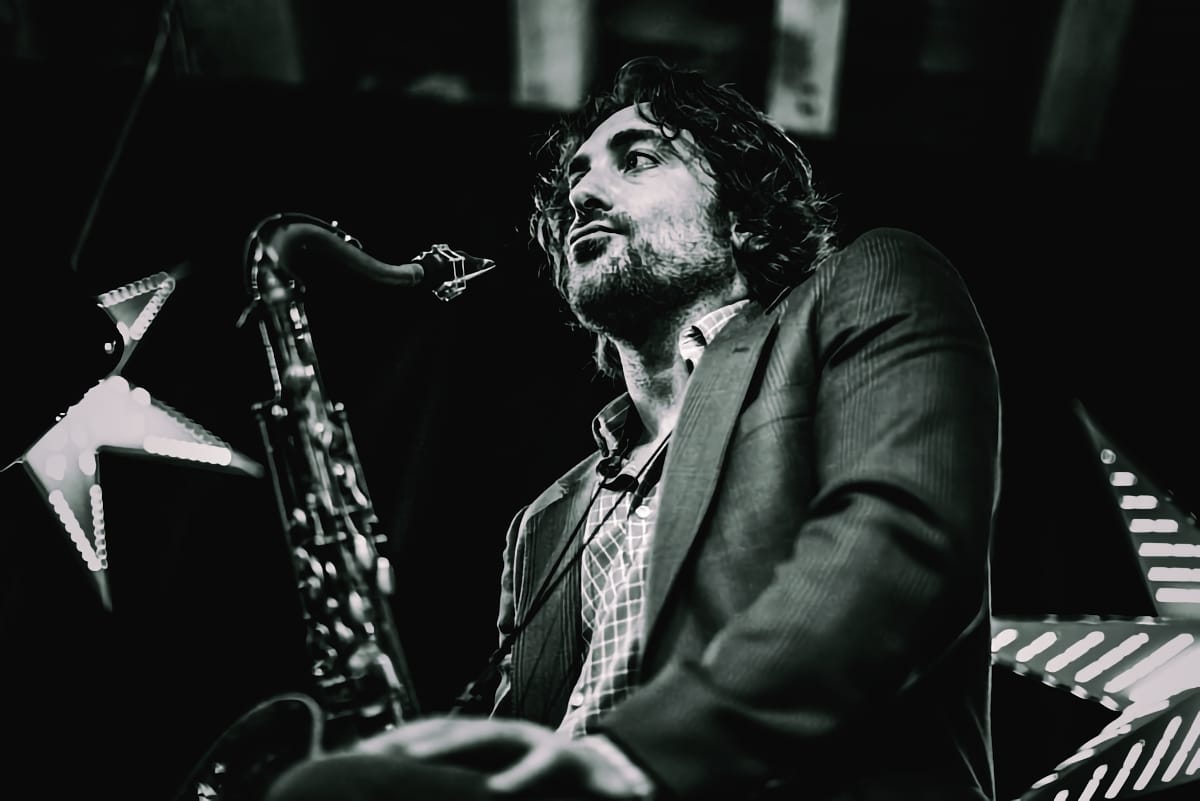
Lawrence: That's a fascinating perspective for somebody committed to improvisational music. You are contributing to the ephemeral nature of the music while being so passionate about the eternal nature of the composition.
Noah: I've had a couple of students lately—I teach at a college, and they're all graduate students, and I give musicians one-off lessons that contact me. And the past month, I've had two unbelievably talented players. One sax player and pianist came to me for a one-off lesson. And for my one-off lessons, we usually hang out for a few hours. Usually, I say, “Can you also send me some of your compositions so I can check out how you write? We can maybe talk about that if you want."
I asked both of them to send me their compositions and I got weird texts back from them saying, "Well, I haven't written anything recently that I want to show to you." And, "Okay, whatever. We don't have to talk about it." So, on both of these calls, they admitted they don’t write like ever and are uncomfortable with it. And one of them even went as far as to say, "I don't know if it's really important to me to write." So we had a long conversation about it.
Also, I got a review on the Ballads record and an email from one of the critics. I thanked the critic, and in response, he sent me a long message saying, "This is some unsolicited advice, but my one gripe with your Ballads record is that you recorded too many originals on it. Like in the lineage of players playing ballads, they tend to be all covers of standards."
He wrote an article about improvising musicians playing original music and the debate on whether or not they should play less original music and just cover more songs so we can hear their interpretations. I thought it was fascinating actually, because things change. Just because I believe that composition is an integral part of an artist's work doesn't mean that that's what everybody thinks or that it could change entirely in the next few decades, and maybe it is changing right now.
Lawrence: Yeah. There's so much that you've said there that is triggering me.
Noah: Sorry.
Lawrence: No, no, no. I mean, I hope that I get to speak with you again over time, but if I ever send you notes on one of your releases unsolicited, I beg you to firmly tell me to go fuck myself. (laughter)
Noah: Yeah, it didn’t bother me for some reason, and maybe I'm just getting—I don't know. That probably would've bothered me at one point. Somehow, it didn't bother me.
Lawrence: It's age, right? And maybe it's the spirit within which it was offered, but yeah, it's very funny that there is a bit of a trope that every critic is a frustrated producer. I could see that reflected there. The other thing, too, is talking to you about standing on tradition doesn’t seem that productive. (laughter)
Noah: Funny you say that. So I used to have a friend named Jimmy Katz. He is a jazz photographer. It's probably how he is most well-known. Jimmy engineered five of my records. He is an excellent engineer and I think he has a record label now and got funding to put out records. One day said to me, "You are sort of in this one category, Noah. Being a straight-ahead player—I don't see that for you. I think you have a lot more to offer in various jazz styles. You have a lot of modern stuff that you can play. How come nobody sees you as that? They see you as more of a straight player?"
If somebody hears you in New York City one time, they may not hear you for another decade, but they will always think of you as whatever they heard you as that night. And so you're screwed if they hear you play straight ahead, like play a bunch of tunes or some stuff kind of in a straight-ahead way. And then for the next decade, 20 years, whatever it is, that might be who you are to that person. And then somebody says, "Well, hey, have you heard Noah?" And the guy goes, "Oh yeah, he's a straight player. I don't think you'd be right for your gig," or, "I don't think you would like it," or, "That's not my thing." It's sort of like a weird game that we have to play, and it helps to put a lot of music out. I don't know if anybody hears it, but it's a way for people to see where you are. And that's what we love about the history of jazz—most of it's recorded, so we get to hear where Miles was every year, where Trane was, or Freddie Hubbard, or where these people were every single year of their lives.
Lawrence: Something else that strikes me about what you said is you create so much music. I mean, your discography is an explosion of music. And as somebody so committed to composition, I struggle even to imagine what your days must be like. Do you write constantly?
Noah: I don't. I like to spend as much time away from music as possible. And I've always sort of been like that. I have a hard time living in my career all the time. Anybody in a creative field has to be obsessive about what they do to get it to a certain level and at the top of any field. Still, to be creative, you have to be a certain kind of nuts and think about what you're doing all the time.
My fingers are always moving because I'm always playing lines through my head and fingering through whatever ideas there are—subconscious. And so I think that helps me stay away from the saxophone. I probably haven’t touched my saxophone at home in almost 20 years. But I’ve been fortunate. I've had a gig in Boston for almost 12 years now, a steady gig every Friday and Saturday night at a jazz club called Wally's.
I did the first seven years with a trumpet player named Jason Palmer, and he left town. And I took over and have done about the last four or five years as the leader. That has allowed me to play original music twice a week in front of an amazing, energetic audience. And so that allows me not to have to play at home all the time because I'm already practicing by being on the bandstand.
Lawrence: Do you record all those Friday and Saturday sessions? Like, are they training material for you?
Noah: Not only do I have them recorded, but I have videos of every Wally's gig I've ever done. I live almost an hour away from the club, and I listen back immediately every night after the gig. I get in the car and listen; I do that with every gig. I'll go back to my hotel room, or I'll go back home or whatever, and I'll listen to the gig either that night or the next day.
I encourage all my students to record and listen. The tape don't lie. For several years, I’ve focused almost exclusively on articulation and time feel. So, I listen almost exclusively to those components of my playing and how my articulation lines up with the drummer's ride cymbal and the beat of the bass player. There's something specific I'm kind of looking for, and I want to see if I'm doing it on the gig. I also want to see how that makes me feel when it is right and when it's not right in my head and what sort of tension or release that creates for me as the listener. So yeah, it's a learning experience every time I listen to myself, which I do every week, every time I play.
Visit Noah Preminger at noahpreminger.com and follow him on Facebook, Instagram, and YouTube. Purchase Noah Preminger's Ballads from Bandcamp or Qobuz and listen on your streaming platform of choice.
Check out more like this:
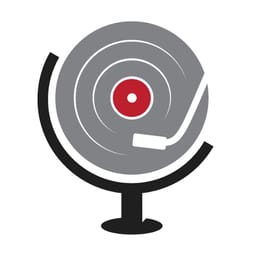 The TonearmLawrence Peryer
The TonearmLawrence Peryer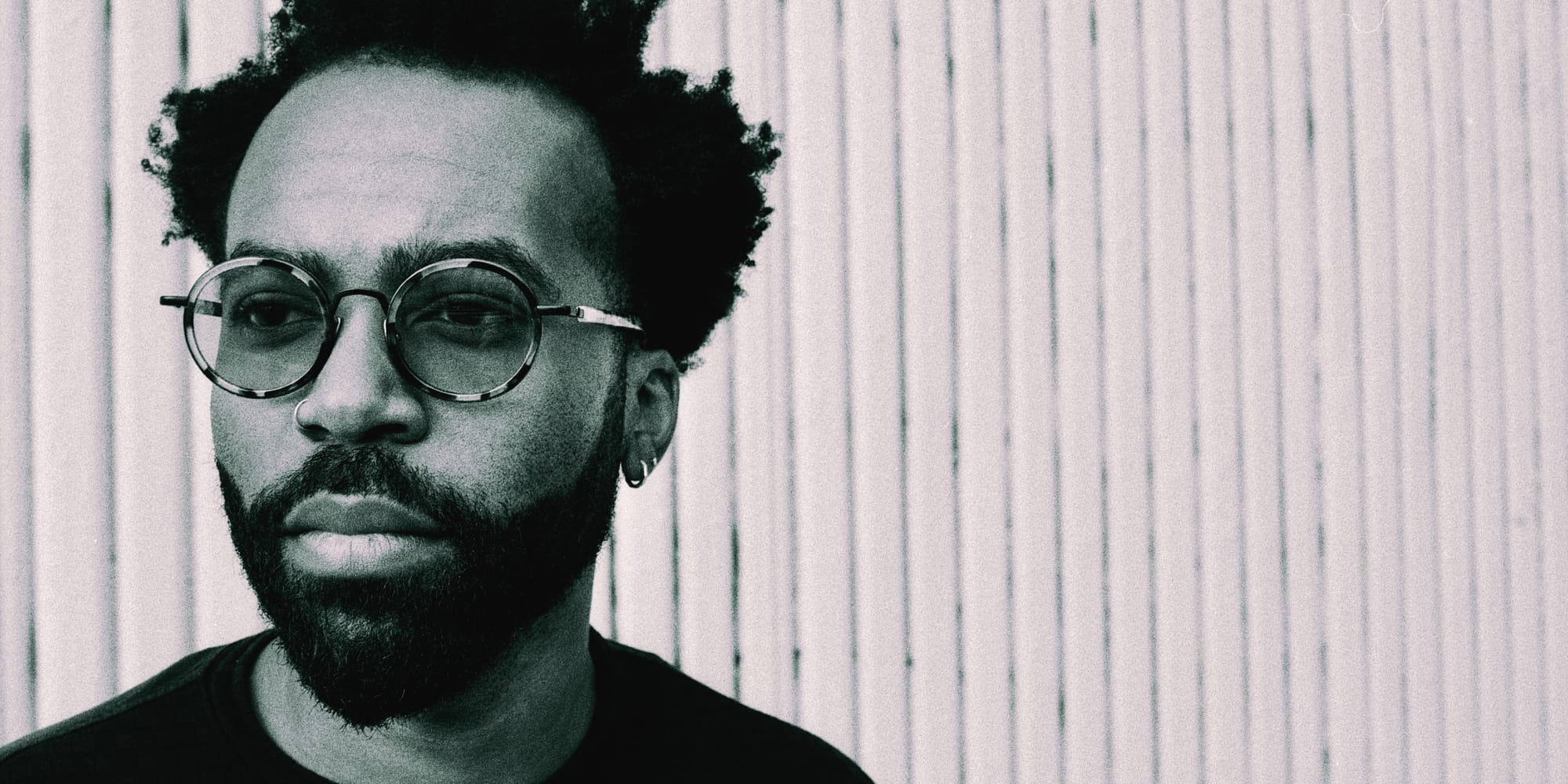
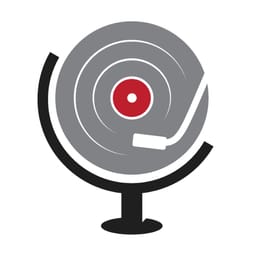 The TonearmLawrence Peryer
The TonearmLawrence Peryer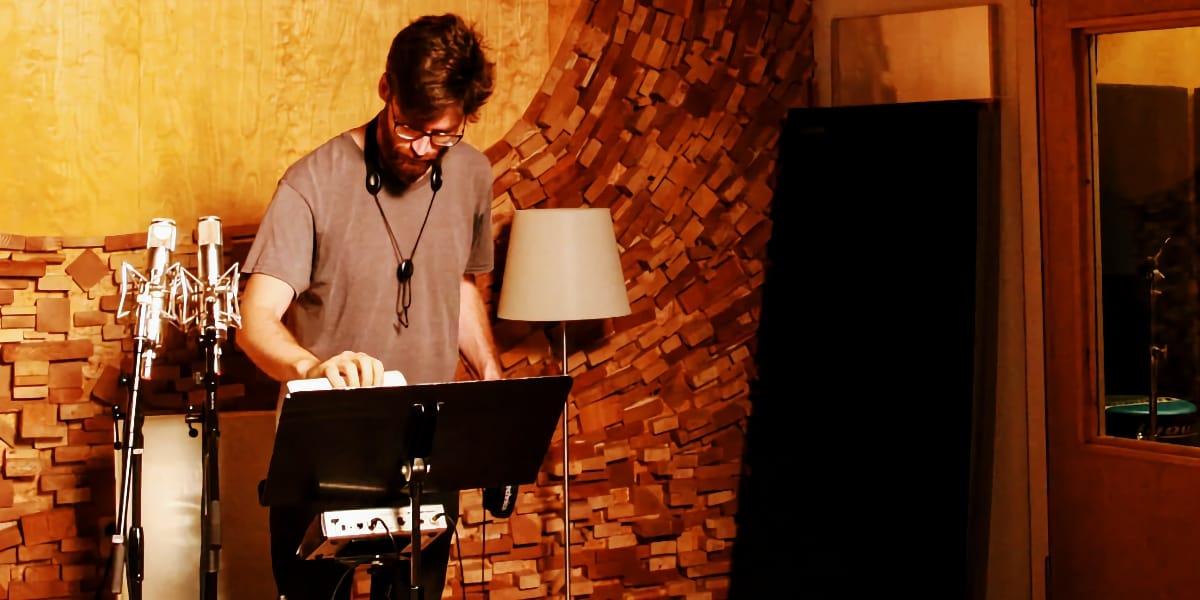


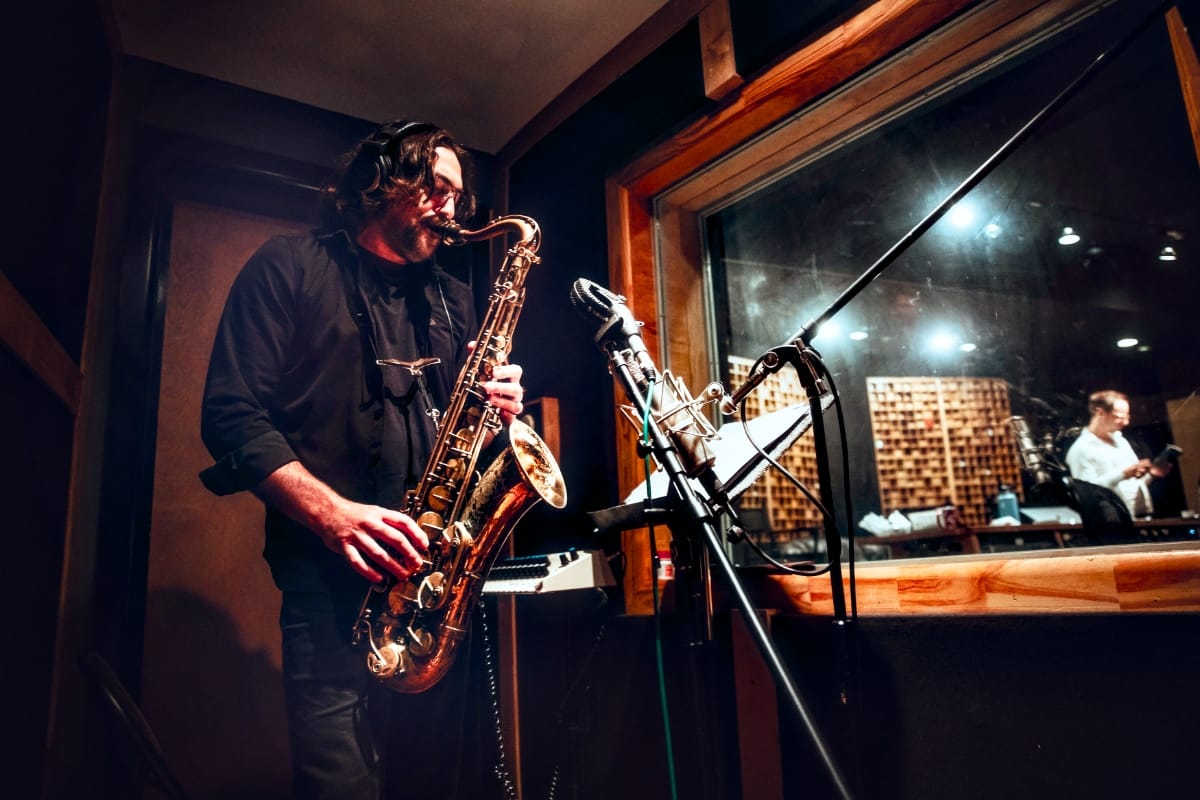


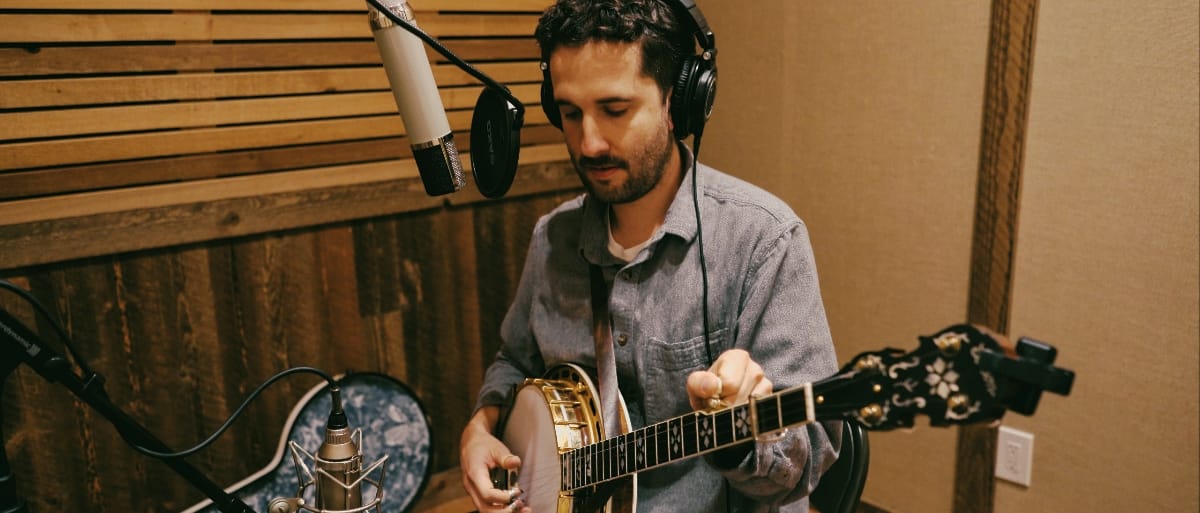
Comments